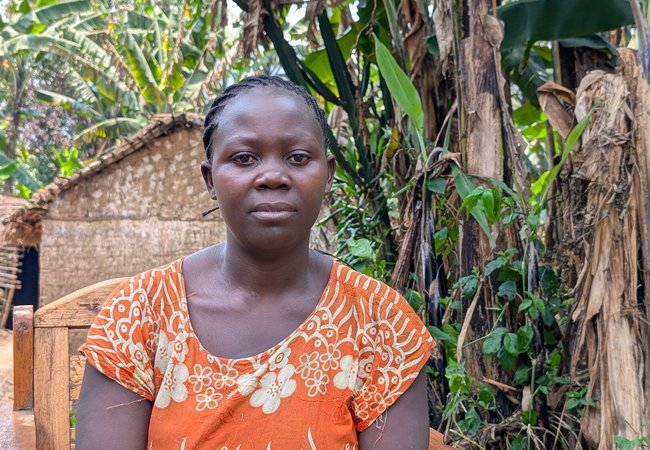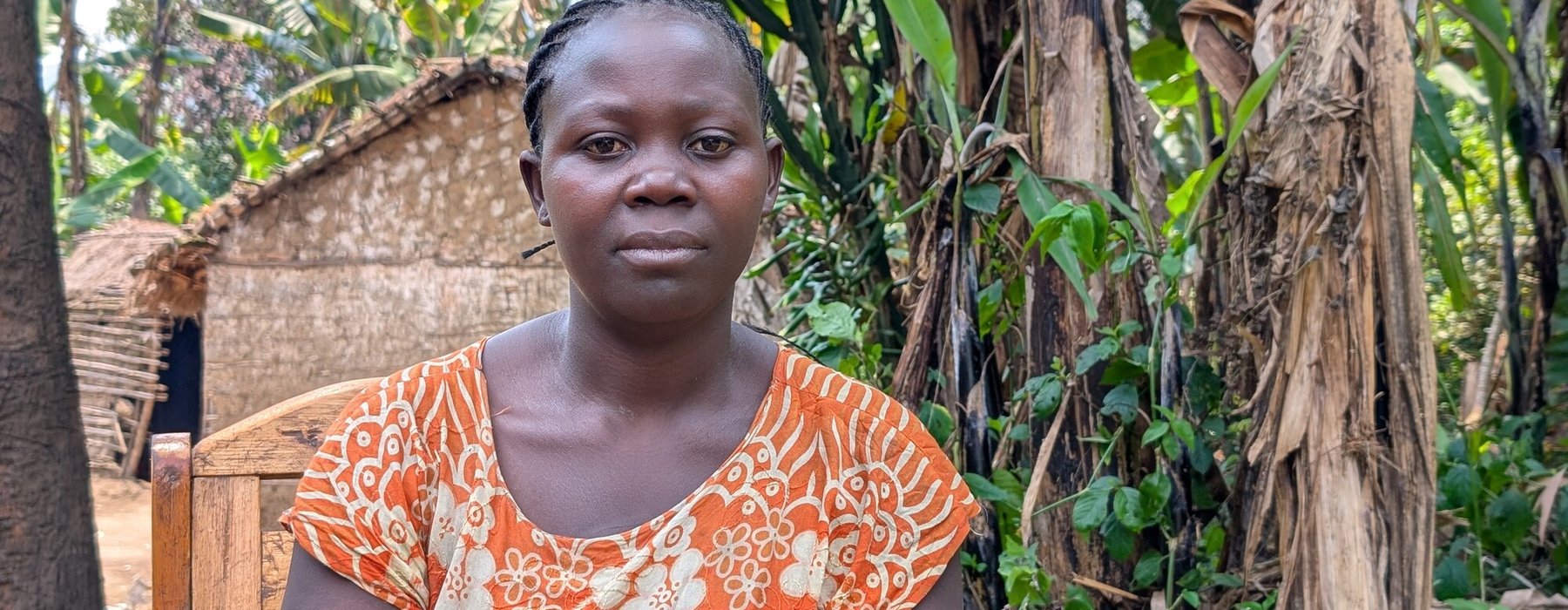Millions forced to flee, with nowhere to go
Since the violence began, more than 7 million people have been displaced in the DRC and left without shelter, food, or water. Over half are women and children, many of whom are facing repeated trauma and unimaginable hardship. Some are sheltering in overcrowded schools and churches that were never meant to house people. Others have fled to remote villages with no access to clean water, food, toilets or security.
The violence in Eastern Congo escalated again in late January, with 700,000 people displaced from camps around Goma. Many were forced to return to insecure homes or were further displaced to another temporary location.
With banks closed, even those who have a little money can’t access it to buy essentials. And climate change is making a bad situation even worse: floods and storms are forcing families from their homes and wiping out what little they have left. Deforestation contributes to land and mudslides during the rainy season. At the same time, access to health services has significantly deteriorated, particularly for survivors of Gender Based Violence as there are less health NGOs in the area.
The result is one of the worst humanitarian disasters in the world today. Across DRC, more than 25 million people don’t have enough to eat, including over 6 million people in the east who are surviving on next to nothing.
“We found ourselves right in the middle of the shooting.”
Kahindo Tantine is a mother of six from Ngumba village in Masisi territory. She once lived a stable, hopeful life as a farmer, a health volunteer, and an active member of her community. But her world was torn apart by violence.
When the fighting came to her village, she and her family ran. “We found ourselves right in the middle of the shooting,” she says. Bombs fell all around her. Some of her relatives were killed.
Kahindo and her family fled to the city of Goma. They spent two years living in an overcrowded displacement camp before returning home, only to find their village in ruins. Their crops were gone. Their home was destroyed. The local health centre had been looted and abandoned. There was no clean water. And no food.
“Hunger is widespread,” she says. “Our biggest dream is just to get our lives back.”
When others step back, Scotland steps up
The crisis in the DRC is growing, but funding for the response is shrinking. Last year the US Government suspended more than $900 million of life-saving aid, despite previously providing around 70% of emergency support across the country.
That decision has forced aid agencies, including Oxfam, to scale back our work, leaving millions of people without clean water, food, or healthcare in the midst of a worsening emergency.
In the face of so much need, the Scottish Government’s support could not come at a more critical time.
The Humanitarian Emergency Fund is managed by a panel of eight leading aid organisations in Scotland, who collaboratively identify the most urgent but often overlooked global emergencies. That means Scotland is not just responding to high-profile crises, but also to those unfolding far from the headlines, like the one in DRC.
The Scottish Government’s funding will allow Oxfam and our local partners to get emergency cash into the hands of people like Kahindo. This flexible approach means people can make their own choices about what they need most, from food to fuel, shelter or hygiene items and gives back a sense of dignity in desperate times.
Oxfam will give direct cash support to 500 households to help them during this crisis.
At the same time, Oxfam will work with our local partner Solidarite pour la Promotion Sociale et la Paix (SOPROP), working together to make communities safer, especially for women and girls, who often face the biggest dangers. Many have suffered violence and trauma but find it hard to get the help they need. That’s why, together with SOPROP, we’ll support 200 survivors of sexual violence to access medical and trauma services.
Survivors will also receive up to $100 to cover urgent transport costs to get to a clinic, pay for safe housing, or for visiting a doctor. With the help of community leaders, we’re making sure they can get medical care as soon as possible.
Manenji Mangundu, Oxfam’s Country Director in the DRC, said: “Every day, our partners and colleagues are meeting mothers who’ve walked for miles with nothing but their children in their arms, desperately searching for safety. They’ve lost everything: their homes, their loved ones, their hope of a normal life. The scale of human suffering here is staggering.
“The recent cuts to humanitarian funding have been devastating. We’ve had to make impossible choices about who gets clean water, medicine, or even a place to sleep.
“That’s why support from the Scottish Government is so vital. With our local partner, it’s helping us reach people who would otherwise be left with nothing. But with millions still in desperate need, we urgently need other governments and donors to follow Scotland’s lead. Now is the time to step up, not step back.”
Mr. Espoir Lukoo Munihire, Secretary General of the Solidarité pour la Promotion Sociale et la Paix (SOPROP), said: “For over thirty years, SOPROP has been working in difficult situations marked by recurring conflicts and wars, constantly adapting its actions to the context.
“The ongoing conflicts in this part of the DRC, now lasting over three years, have only worsened an already alarming situation. The needs of victims of violence and their families, in terms of security, food, healthcare, shelter, and other life-saving essentials, far exceed our capacity to respond.
"Oxfam and its partners, including the Scottish Government, are now lending critical support; restoring hope to thousands of people at the end of their rope, who urgently need a holistic and collective response.”
Hope in the face of hardship
Oxfam has worked in the DRC for more than 60 years. Today, we’re providing clean water, restoring vital infrastructure, and delivering cash and supplies to people in desperate need, even in some of the hardest-to-reach areas. But we can’t do it alone.
Scotland support is helping to reach people who might otherwise be left behind, but more is urgently needed.
You can help too.
Donate today to help us reach even more families with the support they need to survive and recover.


